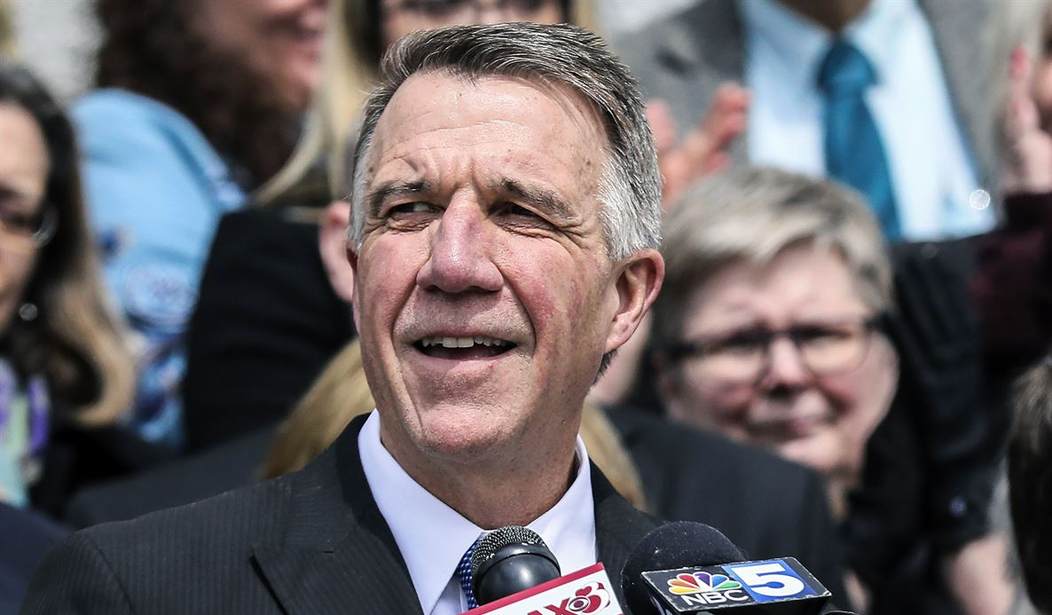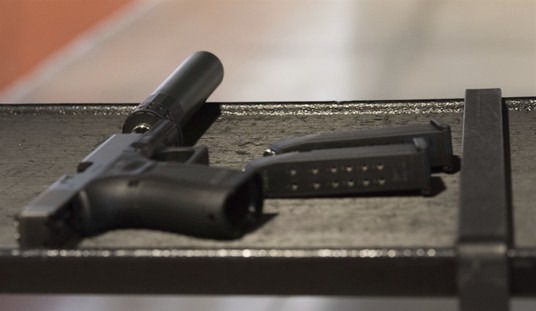Vermont Gov. Phil Scott may be a Republican, but like other fellow blue-state GOP governors, his support for the Second Amendment has been hit-or-miss since he took office back in 2017. His biggest miss came in 2018, when he signed a rash of gun control measures into law, including a ban on gun sales to those under the age of 21, a ban on bump stocks, and a universal background check requirement.
But Scott hasn’t signed every gun control bill that’s been approved by the Democrat-controlled state legislature. In 2019, Scott vetoed a bill that would have imposed a 24-hour waiting period between purchasing a gun and being able to take possession of it, though he touted the state’s “red flag” gun seizure law as one reason why he felt waiting periods weren’t needed.
Now Scott’s once again reiterating his position that Vermont has enough gun laws on the books already, which could spell trouble for the Democrats’ gun control agenda this session.
A proposal to ban guns in Vermont hospitals could face a hurdle when it reaches Governor Phil Scott’s desk.
Lawmakers still need to reconcile their versions of the bill before delivering it to the governor’s desk.
Scott on Tuesday said he does not support the current version of the bill and doesn’t believe additional gun laws are needed. “Make improvements there if necessary but have them at our disposal and make sure people know how to use the tools we have now rather than go make new gun laws,” he said.
It sure sounds like Scott’s not inclined to sign SB 30 into law, but don’t expect Democrats to give up just because of his objections.
Democrats still dominate both the state House and Senate, and while their numbers aren’t large enough to guarantee an override of any veto by Scott, lawmakers did manage to cobble together the votes last year to undo the governor’s veto of a bill allowing non-citizens to vote in local elections in two communities.
In order for SB 30 to become law over Scott’s objections, it needs support from 100 of the 150 House members and 20 of the 30 members of the state Senate. The House version of SB 30 was originally approved by a vote of 84-42, which is 16 votes shy of the 100 votes necessary for an override, but an earlier roll call vote on the bill was far closer at 97-49. The original Senate version was ultimately approved on a 19-10 vote, but a vote to approve an amendment to the bill passed in the Senate by a vote of 20-9.
However, there are major differences between the version passed by the House and the bill as originally introduced in the Senate. The House amended the bill to not only ban the lawful carrying of firearms within a hospital building, but to impose background checks on all firearm transfers in the state, with only limited exceptions for “immediate family members” and “a person who transfers the firearm to another person in order to prevent imminent harm to any person, provided that this subdivision shall only apply while the risk of imminent harm exists.”
Oddly, while anyone possessing a gun in a hospital building would be subject to a $250 fine, someone selling a gun to their longtime neighbor and hunting buddy without putting them through a background check first could face up to a year in jail. Is anyone with actual violent intent going to be dissuaded from bringing a weapon into a hospital because they could face a fine? Honestly, what is the point here, other than for lawmakers to be able to tell voters they “did something” about “gun violence” this year?
Phil Scott is right that these measures both unnecessary and unworthy of support, but that doesn’t mean they won’t become law. It looks like if there’s any opportunity to stop this awful bill from becoming law it’s going to be on the Senate side, where members may very well decide that the amended legislation isn’t really something they want to defend on the campaign trail this year. Frankly, given the signs of a red wave election in November I’d be staying as far away from gun control as possible if I were a Democratic lawmaker (even in a state as liberal as Vermont), but then, my opposition to gun control prevents me from becoming a Democratic lawmaker (or voter, for that matter) in the first place.









Join the conversation as a VIP Member